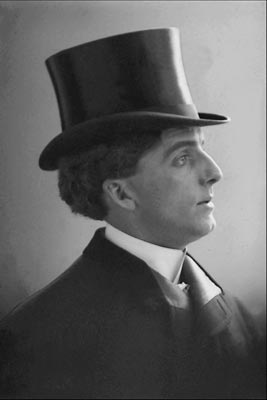Melville’s story is about a Lawyer who hires a scrivener by the name of Bartleby. As one reads the story, Bartleby comes across as a very strange character. He is so “peculiar”, that he is able to grab the Lawyer’s attention to the point that the Lawyer deems himself the responsibility to disclose readers about the life of Bartleby. Ironically, the Lawyer himself states that he is unable to provide a full biography of Bartleby because there isn’t enough “material” on the man.
From the reading, not much information is given about Bartleby as compared to other characters: Turkey and Nippers. With the introduction of Turkey and Nippers, you may notice how detailed Melville is in his descriptions of these two characters. Turkey is described of as an old man who is quite peaceful and productive before 12 meridian. However, after 12 meridian he becomes very “energetic,” “strange, inflamed, flurried,” “with his tongue insolent” and very “noisy.” In addition to his traits, Turkey’s outer appearance (in terms of his clothes) was very messy. They were stained, oily, smelly, and loose. Also, Turkey couldn’t even afford a decent coat and when the Lawyer was kind enough to give him a “highly respectable –looking coat of (his) own—a padded gray coat, of a most comfortable warmth, and which buttoned straight up from the knee to the neck,” (note again Melville’s keen attention to details) Turkey was rude instead of being respectful.

In addition, upon meeting Nippers one may assume that Melville introduced such a character as the polar opposite of Turkey. Nipper was a young man who had the following issues: indigestion and being too ambitious. I personally found the part where he is always trying to align the legs of the desk to get it balanced a bit humorous because no matter how many methods he comes up with to fix the problem, he is always unsuccessful. But on the positive note, Nippers is always well dressed and is efficient at working in the afternoons (opposite of Turkey).

Interestingly enough, both Nippers and Turkey are quite opposite of each other. However, when it comes to ginger nut cakes, the two characters are similar at that moment. The both of them love to eat the cake and therefore send Ginger Nut to buy the cakes for them.
Now when it comes to Bartleby, he is quite individual who used to do his work monotonously. He eventually gave up doing anything, and his statement “I prefer not to,” became a mantra for him. The Lawyer who was a Good Samaritan, tried to help Bartleby as much as he could. But, it came to a point that the Lawyer ran out of options and having tried many ways to get rid of Bartleby, he himself ended moving away from Bartleby by getting new office (here once again we see Melville’s humorous side). Think about it, if there were a Bartleby in today’s job environment, he/she would be fired and gone instead of the company or the boss having to move the headquarters. Quite frankly, would there really be a Bartleby today, especially with so many people unemployed? If those unemployed knew of Bartleby’s actions, they would be referring to him as a lunatic who is wasting a good opportunity and working for a nice boss.
But, can Bartleby be blamed for his lack of work ethics? When we discover his previous job at Washington, it was quite depressing. I think every time he burned a letter, a part of him also went into the fire. The sadness probably overtook his soul and body to a point that he stopped living his life. At the jail he would stare over the wall and into the sky. One can only guess as to what Bartleby was thinking when he would look outside the office window towards the brick wall or beyond the jail wall. We can never be sure exactly what got the best of Bartleby, but it can be inferred that he lived an unhappy life. The story’s lesson is: live your life and be happy. Despair and loneliness is the way to be.




 Image from google images.
Image from google images. Image from google images.
Image from google images.

